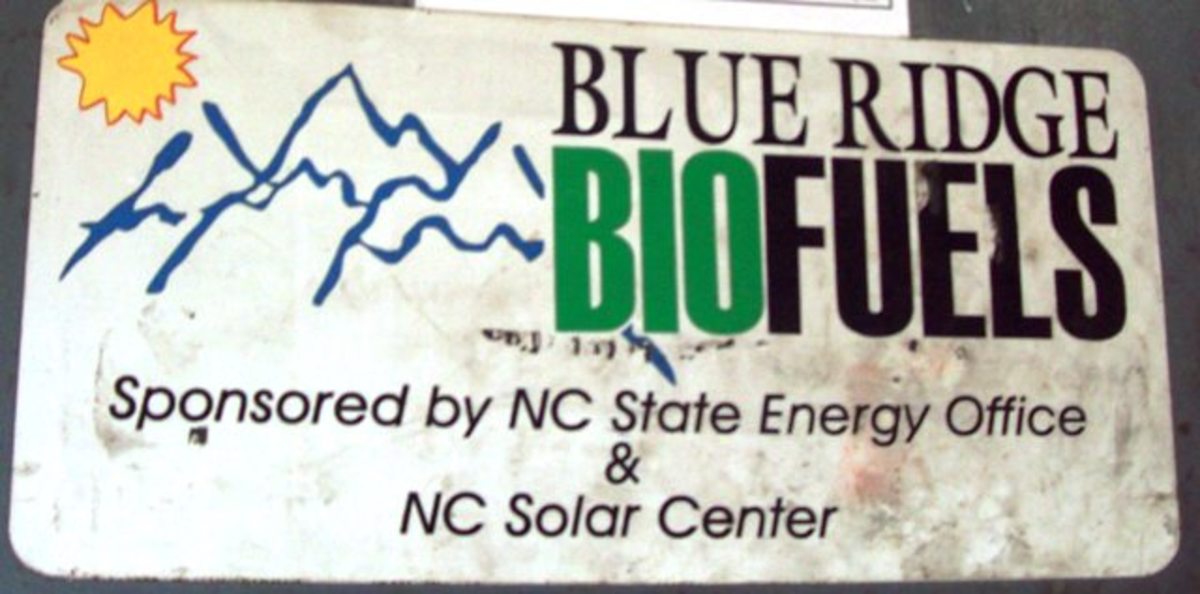Facts Vs Fiction of Methanol: Key chemical for Biodiesel preparation

Mehtanol is an important chemical used in Biodiesel manufacturing process. The methyl group from Methanol helps convert Vegetable Oil to to Biodiesel. Thus, a large quantitiy is often required. Depending on your method, you could be using anywhere between 12-26% Methanol compared to the volume of Oil. There are many questiona about how safe methanol is. This hub tries to separate some of the fictions from fact. In short, Methanol is relatively safe chemical as long as a large qantiity is not inhaled or ingested. If you have any questions, feel free to ask or post any comments.
Question: Just how dangerous is methanol?
Fact: Methanol is a poisonous chemical that can blind you or kill you, and as well as drinking it you can absorb it through the skin and breathe in the fumes.
Question: How much does it take to kill you?
Short answer: Anything from five teaspoons to more than half a pint, but nobody really knows.
Fact: Human susceptibility to the acute effects of methanol intoxication is extremely variable. The minimum dose of methanol causing permanent visual defects is unknown. The lethal dose of methanol for humans is not known for certain. The minimum lethal dose of methanol in the absence of medical treatment is put at between 0.3 and 1 g/kg.
That means it's thought to take at least 20 grams of methanol to kill an average-sized person, or 25 ml, five teaspoonsful. Or it might need more than three times as much, 66 grams, 17 teaspoonsful, or maybe more, and even then it'll only kill you if you can't reach a doctor within a day or two, and maybe it still won't kill you.
But it definitely can kill you. If you drink five teaspoonsful of pure methanol you'll need medical treatment even if it doesn't kill you. Yet people have survived doses of 10 times as much -- a quarter of a litre, half a pint -- without any permanent harm. But others haven't survived much lower doses. Getting rapid medical attention is crucial, though the poisoning effects can be slow to develop.
Authorities advise that swallowing up to 1.3 grams or 1.7 ml of methanol or inhaling methanol vapour concentrations below 200 ppm should be harmless for most people. No severe effects have been reported in humans of methanol vapour exposures well above 200 ppm.
Out of 1,601 methanol poisonings reported in the US in 1987 the death rate was 0.375%, or 1 in 267 cases. It might have been only 1 in more than a thousand cases because most cases weren't reported. Most cases were caused by drinking badly made moonshine, which is a worldwide problem.
Fiction: "Methanol is ... a very active chemical against which the human body has no means of defence. It is absorbed easily through the skin and there is no means of elimination from the body, so levels of methanol dissolved in the blood accumulate."
That's from a British website trying to sell Straight Vegetable Oil (SVO) solvent additives by frightening people with the alleged perils of biodiesel.
Fact: 30 litres of fruit juice will probably contain up to 20 grams of methanol, near the official minimum lethal dose. Methanol is in the food we eat, in fresh fruit and vegetables, beer and wine, diet drinks, artificial sweeteners.
Not only that, methanol occurs naturally in humans. It's a natural component of blood, urine, saliva and the air you breathe out. It's there anyway even if you've never been exposed to chemical methanol or its fumes.
Methanol is eliminated from the body as a normal matter of course via the urine and exhaled air and by metabolism. Getting rid of it takes from a few hours for low doses to a day or two for higher doses. Some proportion of a dose of methanol just goes straight through, excreted by the lungs and kidneys unchanged. The normal background-level quantities of methanol in humans are eliminated and replenished all the time as a matter of course.
Fiction: It's largely biodiesel's methanol content that's being blamed when the same British SVO website charges that biodiesel is wasteful and environmentally irresponsible.
Fact: Methanol is readily biodegradable in the environment under both aerobic and anaerobic conditions (with and without oxygen) in a wide variety of conditions.
Generally 80% of methanol in sewage systems is biodegraded within 5 days.
Methanol is a normal growth substrate for many soil microorganisms, which completely degrade methanol to carbon dioxide and water.
Methanol is of low toxicity to aquatic and terrestrial organisms and it is not bioaccumulated. (It's toxic mainly to humans and monkeys.)
Environmental effects due to exposure to methanol are unlikely. Unless released in high concentrations, methanol would not be expected to persist or bioaccumulate in the environment. Low levels of release would not be expected to result in adverse environmental effects.
Fiction: A European SVO fuel website using similar anti-biodiesel tactics claims: "Biodiesel is a chemically altered plant oil. However the process to chemically change the structure of Pure Plant Oil is a very costly operation and requires a lot of energy, as it removes the glycerine substituting it by methanol as well as adding other chemicals, making the end-product poisonous and equally hazardous as fossil diesel fuel."
Fact: There is no free methanol in washed biodiesel. All the national standards require washing. According to US EPA studies methyl esters biodiesel is less toxic than table salt and more biodegradable than sugar. It has none of the toxic or environmental hazards of fossil diesel fuel.
To put it all in some perspective, methanol is the main or only ingredient in barbecue fuel or fondue fuel, sold in supermarkets and chain stores as "stove fuel" and used at the dinner table. It's also the main ingredient in the fuel kids use in their model aero engines.
Yes, methanol is a dangerous chemical, but quite how dangerous it may be is a little hard to say, and it causes surprisingly little harm. If you're careful and sensible and treat it with caution it won't harm you either. Many thousands of biodiesel homebrewers worldwide have been using it for years without serious mishap.
In our view, the difference between methanol and the really dangerous chemicals is that although methanol is poisonous, it's a natural chemical, you'd find it in the Garden of Eden too. It's not something nature's simply never heard of before and has no way of handling and neither do you, unlike too many of the 100,000-odd "new" chemicals now in use which aren't readily biodegradable and do accumulate, and spread, and keep being implicated in cancer clusters and bizarre sexual distortions of frogs and so on and on and on.
There are no reports of carcinogenic, genotoxic, reproductive or developmental effects in humans due to methanol exposure. Its environmental effects if any are minimal and short-lived.
Biodieselers can and do use methanol safely and the biodiesel fuel we make from it is safe and clean.








